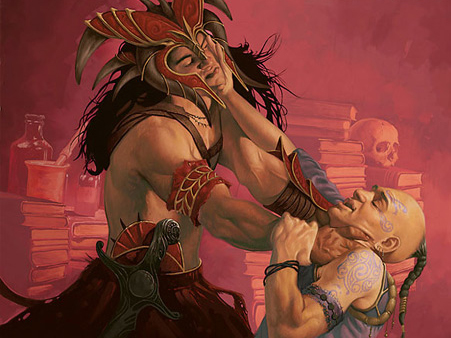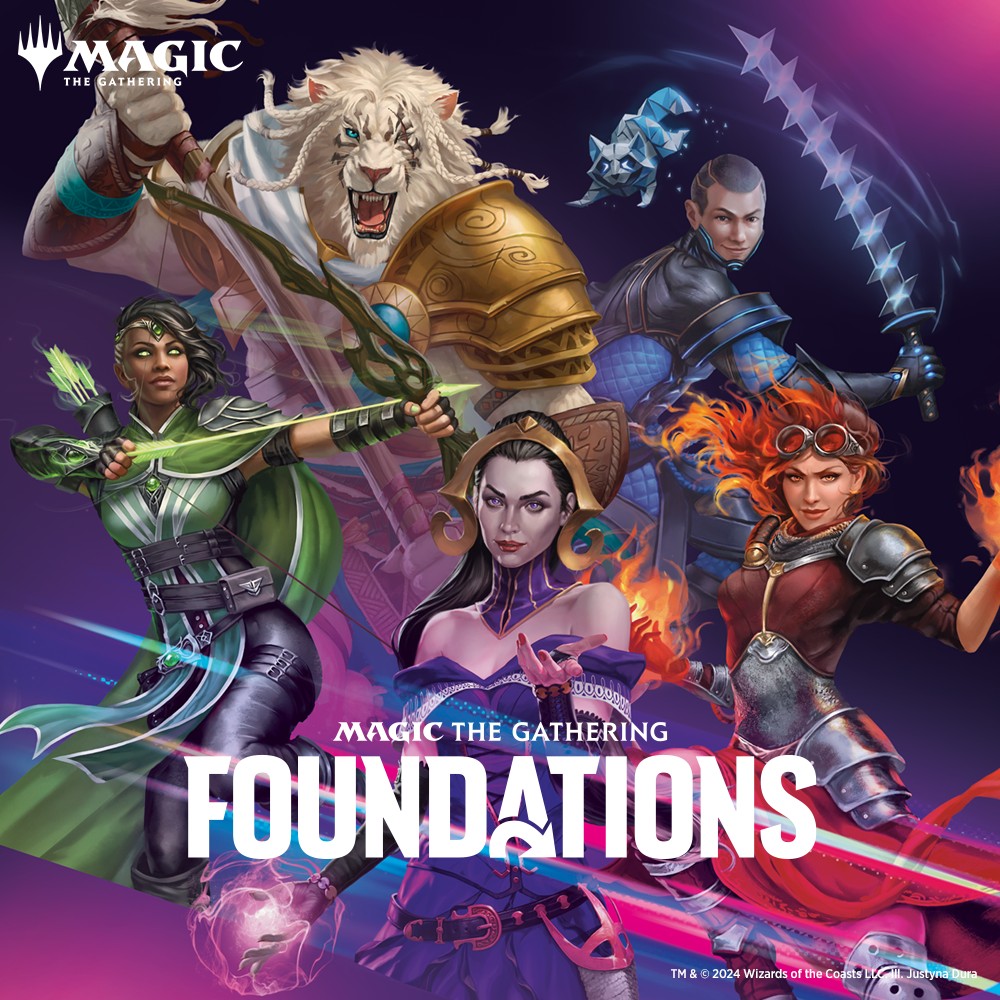Commander is enjoyed by the competitive, the casual and everyone in between. Because of the social nature of the format, these player bases run into each other often which leads to some unfun games. In this article, I will suggest how, as a casual player, you can slow down competitive decks with a few key cards. I will focus on less expensive cards (<$10), but also mention some of the staples commanding high price tags.
Before we start: Deck building principles
For the most part, competitive Commander decks are faster; more consistent; and the cards used, in a vacuum, are better. If you're looking to start making your deck competitive, you need to lower your curve, to know your game plan inside out, and to have answers (removal) to oppressive cards in the format. With that out of the way, let's look at a few ways to attack the behemoths of the format.
Punish greedy (and expensive) mana bases
Remember how I said competitive Commander decks are more consistent? An expensive mana base helps a lot with that. If you aren't fully stocked on fetch lands and ABUR dual lands, punish those that are. Ruination, From the Ashes and to a certain extent Hall of Gemstone altogether cost about $10. Once you expand your budget, you're looking at the usual suspects like Back to Basics, Blood Moon and its less sticky cousin, Magus of the Moon. If you're afraid of Maze of Ith, Dust Bowl and friends, Tsabo's Web can slow those down and it even cycles. If you hate your opponents as much as their dirty, expensive lands, you may want to load up on mana-producing artifacts and add Armageddon to your deck.
Tax casting
It isn't uncommon, even in a casual setting, for a player to have a turn where they "go off" with a combo. There are two ways we can slow this down: make spells cost more or not let them chain spells.
Make spells cost more
When you're chaining spells, even making someone pay 1 extra each time is rough. Against a Storm or Doomsday player, they need to remove this type of threat to win. There are a few ways to influence casting cost, the cost-effective options are Thalia, Guardian of Thraben, Grand Arbiter Augustin IV, and Lodestone Golem. There are a few other versatile artifacts, but they have slightly higher price tags. Those include: Trinisphere, Thorn of Amethyst, and Sphere of resistance.
Restrict how many spells you can cast
This tactic is surprisingly effective and in my experiences, usually punishes competitive decks most. Rule of Law, Arcane Laboratory and Eidolon of Rhetoric are all quite affordable. Ethersworn Canonist is a tad more expensive, but just as effective.
Tap permanents as they enter the battlefield
When your permanents enter tapped, you're essentially slowed a turn. It can give the whole table a chance to address a problem permanent. There are several ways to do this in several colours, each of which is under $10:
Don't let opponents search libraries
Decks are searched a surprising amount in Commander. Rightfully so, tutors are incredibly important for a deck's consistency, and for (most) green decks, how you get more lands. Leonin Arbiter, Mindlock Orb, Stranglehold, and the more expensive Aven Mindcensor all help to make sure your you don't fall behind because you don't have fetch lands, Imperial Seal, Worldly Tutor, and more.
Punish artifact over-use
Cards like Mana Crypt are expensive because they're incredible. If your opponent plays one (or other clutch mana rocks Sol Ring, Grim Monolith, Mana Vault) and you don't, you'll soon feel like you're falling behind. Unfortunately, the best hosers (Null Rod and Stony Silence) are on the pricy side. Kataki, War's Wage can do an okay job around $4, though.
Prevent alpha strikes
If you anticipate decks that go wide (ex.: elves) and you have nightmares featuring Craterhoof Behemoth, it might be worth slowing down combat. Crawlspace, Silent Arbiter and Dueling Grounds all restrict the number of creatures that can attack and do so without breaking the bank.
Stax decks
I can't speak about slowing Commander games down without mentioning key stax cards. For the unaware, stax decks tax and slow down the entire table by taxing permanents: forcing them to tap or preventing them from untapping. The most important cards in a stax deck are:
If you combine these cards with decks that synergize well with them, you come out with the advantage. Torpor Orb, which doesn't fall within the stax category above, is just so effective against so many cards that it needs to be mentioned.
Note that all these cards are less than $10. That said, it is equally important to note that you will have to endure groans and requests to change decks with a lot of these cards in them.
Conclusion
Depending on what you're up against, there may be some cost-effective cards that drastically improve your chances when sitting across from competitive Commander decks. Hopefully this beginner's guide helps pave the way to building better decks and prevents $2,000+ decks from ruling your local tables.


